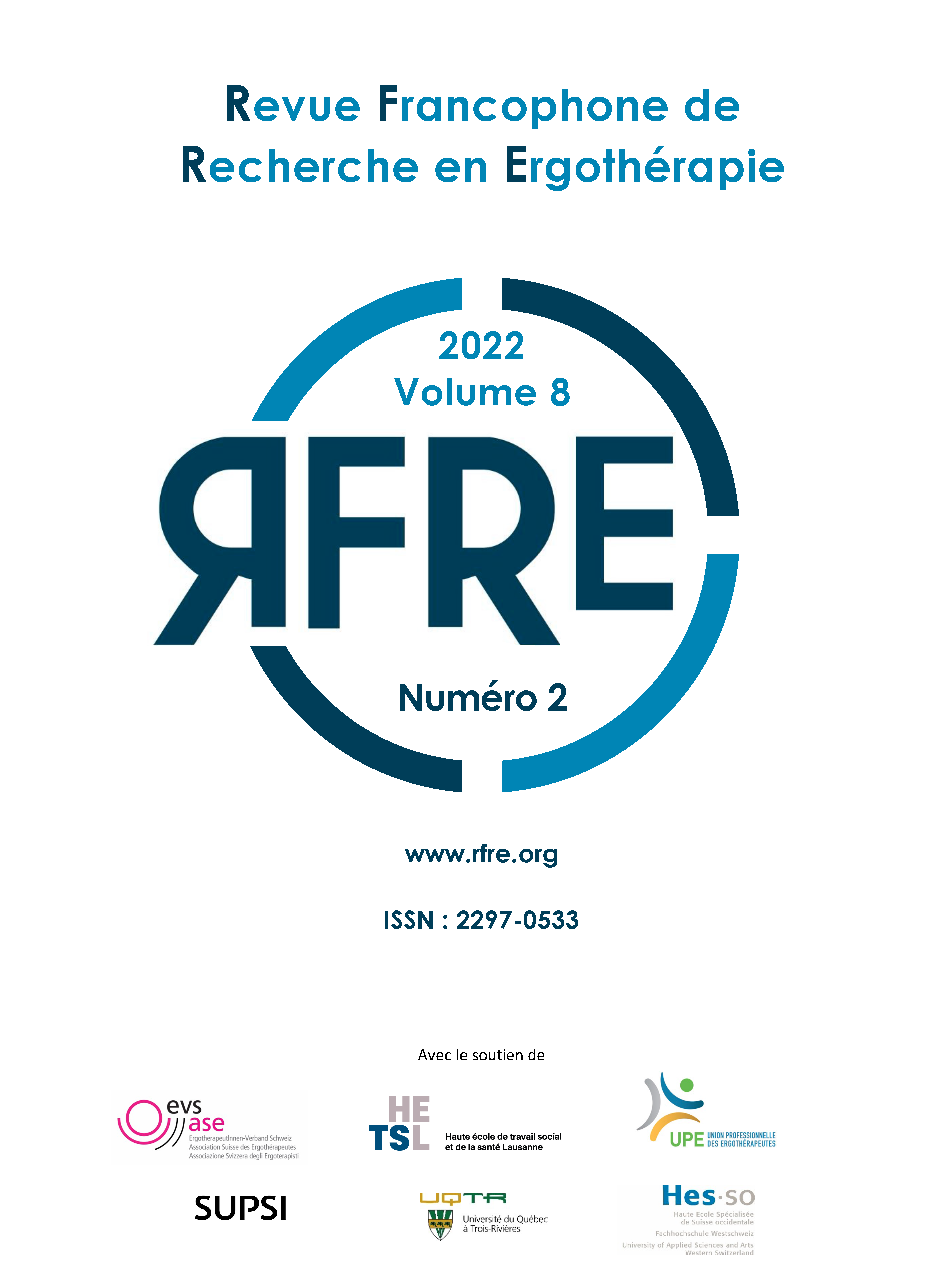Qu’est-ce que le professionnalisme en ergothérapie ? Étude des représentations d’étudiants et de superviseurs de stagiaires francophones du Québec
DOI:
https://doi.org/10.13096/rfre.v8n2.217Keywords:
Professionnalisme, Ergothérapie, Compétences, Étudiants, Stagiaires, Antécédents, Attributs, Conséquents, Représentations sociales, Professionalism, Occupational therapy, Competencies, Students, Interns, Antecedents, Attributes, Consequences, Social representationsAbstract
Professionalism is a key competency for occupational therapists, but issues of ambiguity regarding its definition have been raised in the past. A recent study made it possible to propose a contemporary definition of professionalism in occupational therapy. However, this definition is generic and does not consider the specificities of the unique population of occupational therapy students. Since professionalism follows a developmental process that is influenced by culture, the objective of this study was to explore the representations of professionalism of students and supervisors of occupational therapy interns in the French-speaking Quebec university context. According to an interpretative descriptive research design, focus groups were conducted with 16 university students and individual interviews were conducted with 16 supervisors of interns. The qualitative data collected was processed using a thematic analysis strategy. Results suggest antecedents (e.g., academic background), attributes (e.g., attitude of fair self-confidence or behavior of considering all team members equally) and consequences (e.g., professional identity) of professionalism in occupational therapy that are unique to the population of French-speaking occupational therapy students in Quebec. The interpretation of the results suggests that professionalism is part of a complex developmental paradigm, that the values specific to the profession are not very present in the representations of the students and supervisors of interns encountered, and that the work organization can be a threat to professionalism in occupational therapy. Finally, this study offers levers on which to act to facilitate and improve teaching and development of professionalism.
Downloads
Published
How to Cite
Issue
Section
License
Copyright (c) 2022 Julie-Pier Boudreault, Catherine Madon, Chloé Rioux, Paméla Rousseau, Marie-Josée Drolet, Nancy Baril, Alexandra Lecours

This work is licensed under a Creative Commons Attribution-NonCommercial-ShareAlike 4.0 International License.












